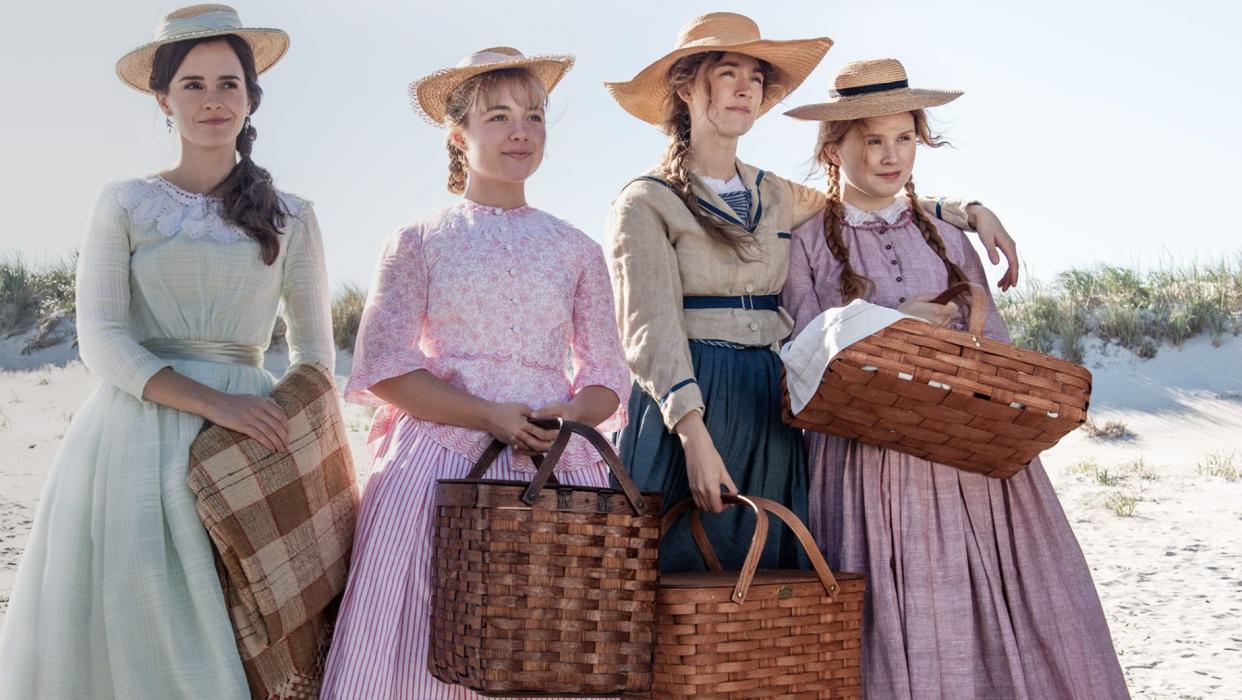Women Directors Broke Records in 2019, Including $1.7 Billion in Box Office

Click here to read the full article.
Forget the Golden Globes’ snub of women directed films in three top categories. (Better yet, just forget the Golden Globes.) When it comes to future growth, what matters is a significant increase in the number — and impact — of female-directed films this year.
Let’s not pretend that equal opportunity is close to reality. But the improvements in just one year are startling. In IndieWire’s 2018 year-end review, we noted that only two of the top domestic 50 grossers were directed by women. “Why this result after ‘Wonder Woman?’ Just figure the usual two year-plus lag for studios to respond after something hits big. The statistic should be improved next year.”
More from IndieWire
'Uncut Gems' and 'Bombshell' Soar, Malick's 'A Hidden Life' Drags
With 'Jumanji: The Next Level,' the Final Box-Office Charge of 2019 Begins
Indeed, improvement is right on schedule.
Women broke records.
Of the year’s approximately 125 wide studio releases, 19 had women as directors. That’s about 15% — hardly huge, but a massive jump over the four directors last year, or the nine in 2017.
Of these, 12 (including Greta Gerwig’s “Little Women” and Sophia Takal’s “Black Christmas,” both of which have yet to open) will be among the 100 highest-grossing films. Last year, there were only three in that count; in 2017, eight.
Three this year — the co-directed “Frozen” and “Captain Marvel,” and “Hustlers” — will pass $100 million. In 2018, only “A Wrinkle in Time” (barely) achieved this. In 2017, it was the breakout “Wonder Woman” and “Pitch Perfect III.”
“Frozen II,” with Jennifer Lee sharing credit with Chris Buck, looks to pass $500 million domestic, and beat out the first “Frozen” ($443 million adjusted) as the top female-directed film. This year’s “Captain Marvel” (Anna Boden, with longtime partner Ryan Fleck) is third, with Patty Jenkins’ “Wonder Woman” fourth. All made over $400 million, all in the last three years, all attached to the kind of vital franchise film central to today’s business — the sector where women lagged most.
All told, the 19 films represent $1.7 billion in box-office gross — and even without “Frozen II” and “Captain Marvel,” the remaining 17 films will gross over $800 million. For 2018, all women-directed films grossed under $300 million. In 2017, with “Wonder Woman” included, less than $800 million.
Quantity, and quality, are higher than ever.
Washington Post film critic Ann Hornaday has eight films directed by women on her year-end 10 best list. Half of the top 10 titles on Metacritic belong to women directors. (Celina Sciamma’s “Portrait of a Lady on Fire” is #2; #5 Joanna Hogg’s “The Souvenir,” #6 is “Little Women,” #8 is Waad Al-Kateab’s “For Sama,” and #9 is Lulu Wang’s “The Farewell”). Four more are in the top 20 (with ties, 23 total films). Last year had only one in the top 10, and 2017 two (Gerwig’s “Ladybird” and Agnes Varda’s “Faces/Places” tied for first).
Other acclaimed titles include Olivia Wilde’s “Booksmart,” Marielle Heller’s “A Beautiful Day in the Neighborhood,” Lorene Scafaria’s “Hustlers” — all of which makes the Golden Globes snub look more ignorant. Though it has been a decade since Kathryn Bigelow made history with “The Hurt Locker,” never have so many films directed by women been in the overall discussion.
Women have range.
Hit movies by women are not new. Amy Heckerling and Penny Marshall blazed trails in the 1980s, followed by Penelope Spheeris, Nora Ephron, and Betty Thomas. These tended to be comedies or romantic films. Marshall, Barbra Streisand, and Bigelow broadened that with “Awakenings,” “The Prince of Tides,” and Bigelow’s military-themed films.
For 2019, among the 100 top grossers this year are two animated films (“Abominable” and “Frozen II”), edgier crime-related dramas (“Miss Bala,” “The Kitchen,” “Queen & Slim”), biopics (“A Beautiful Day,” “Harriet”), horror (“Black Christmas”), and an action franchise remake (“Charlie’s Angels”).
What’s next?
The first six months of 2020 include four big-ticket releases with women directors — a level that, until recently, didn’t exist for them. “Birds of Prey,” “Mulan,” “Black Widow,” and “Wonder Woman 1984” all cost over $100 million, and all have high expectations. They could easily all be among the 10 highest grossing titles by mid-year. Again, unprecedented.
These results aren’t good enough, of course, but things are improving. One anecdote: Just after Elizabeth Banks’ “Charlie’s Angels” bombed last month, Noah Hawley, fresh from the even-lower “Lucy in the Sky,” was announced as the director of the next “Star Trek” films.
Film Twitter howled — a man is allowed to fail, yet he’s rewarded. Why can’t women? Within days, Banks was announced as director and star of Universal’s “Invisible Woman.”
It’s a start.
Sign Up: Stay on top of the latest breaking film and TV news! Sign up for our Email Newsletters here.
Best of IndieWire
Sign up for Indiewire's Newsletter. For the latest news, follow us on Facebook, Twitter, and Instagram.

